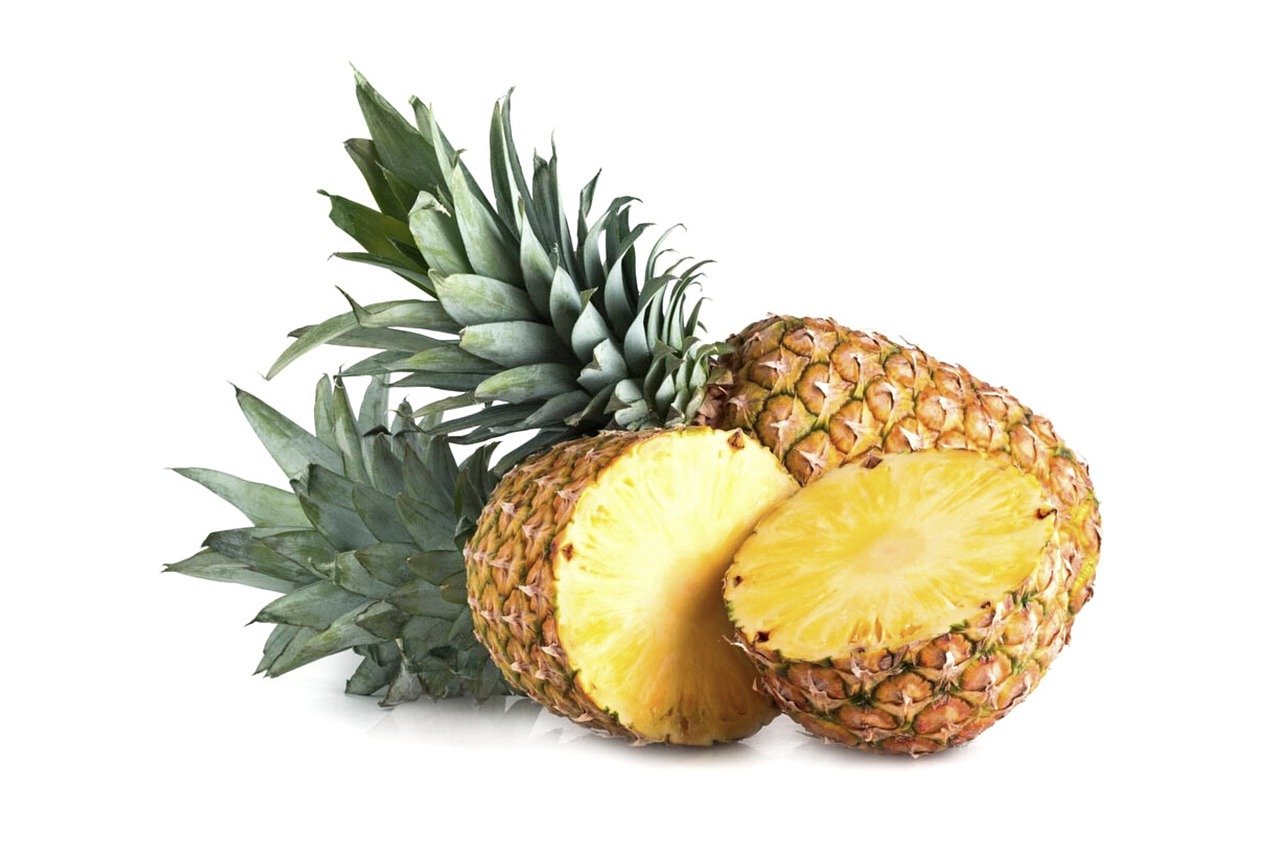Can Pineapple Make You Sick?
Pineapple contains an insane amount of vital nutrients, including some protein and even fat. In wholesome food, pineapple is on the top, along with food items like dairy products, whole grain, and legumes. However, it is also true that pineapple contains quite several acids and even an entire group of digestive enzymes called bromelains. This can make people worry about how healthy pineapples truly are.
The fact of the matter is that pineapples are edible, and if the person consuming is a healthy adult or child, then there’s no reason for him/her to become sick from eating pineapple. Ripe pineapples have bromelain, but not enough to make anyone sick under normal conditions. However, if you have unripe pineapple at home, then that can become a cause for worry.
It’s important that you only purchase and consume ripe pineapple. Ripe pineapple has a golden yellow color and is naturally sweet and juicy. On the other hand, the unripe pineapple will be very tart and is bound to irritate the oral cavity.
What Are The Side Effects Of Eating Pineapple?
On the whole, freshly sliced pineapple and canned pineapple produce little risk for people, especially if they are not hypersensitive to pineapple components. Keep in mind that pineapple contains bromelain and different acids. Pineapples are 8%-9% citric acid, too. Citric acid is the same stuff found in soda drinks and medication (as a buffer against bacteria). Only ripe pineapples should be eaten because unripe pineapple tends to have higher doses of the digestive enzyme bromelain.
What happens when you eat something that has too much bromelain?
When you eat too much bromelain, you will notice that the enzyme will immediately work on the mouth’s inner lining. There will be some inflammation, discomfort, and itching in some cases.
It would help if you washed away the enzyme to reduce the discomfort. Ripe pineapples don’t have much bromelain, so this shouldn’t be a problem. However, there are some instances when street markets and groceries inadvertently stock unripe pineapples.
Here’s a secret about ripe and unripe pineapples. Both of these pineapples can be soft and juicy. Unripe fruit eventually breaks down, making it juicier. Juiciness is not a sign of being ripe. Essentially, you are still eating unripe pineapple with more juice as the fruit’s physical integrity begins to decrease over time.
We do not recommend eating pineapple if you take any medication, especially antibiotics, sedatives, and anticonvulsants. If you are taking blood thinners for any condition, ask your doctor first before eating large pineapple quantities.
You can probably eat any fruit a few hours before taking medication, but not immediately after, as the pineapple’s compounds may interact negatively with the medication.
What about herbal medication and preparations? The only notable warning is that you should avoid eating pineapple if you are taking any herbal preparation with valerian, as there may be some unintended side effects.
If you experience any swelling or severe discomfort around the mouth while eating pineapple, observe the symptoms and get to a doctor as soon as you can.
Can Pineapple And Milk Kill You?
Certain cultures attach significations to certain foods, and it’s the same situation for pineapples. There is no scientific proof that eating pineapple and drinking milk at the same time can kill you. First of all, there is nothing poisonous in pineapple or milk in the first place.
Combining the two in the stomach would be like combining pineapple and yogurt, essentially just fermented milk. And suppose a pineapple is dangerous when eaten with any dairy product. In that case, there should also be restrictions when eating oranges and other citrus fruits with milk and other dairy products.
But let us indulge the situation a bit and ask – what will happen if you combine something as acidic as pineapple with milk?
While the effect would be nonsensical and irrelevant because the entire stomach is coated with a powerful digestive acid called hydrochloric acid, what would happen is that the milk will split, like what happens when you cook milk or yogurt.
When milk splits, the whey content of the milk and the fat and proteins will clump together. The body takes care of the split components and digests the milk and the pineapple you ate all the same. There’s nothing wrong with milk splitting since the stomach is acidic, and the milk will split anyway.
Where did this belief come from, anyway? The closest that we can turn up in terms of cultural beliefs is that in Indian culture, there is a folk belief that eating pineapple and milk can result in disease and death. This may be related to how they match food and how they believe food properties affect the body.
While we respect these regional differences in how food is understood, we have to trust what we know through science that food doesn’t just become toxic because you combined it with another food.
Is It OK to Eat pineapple every day?
Since pineapple is low in calories, you can probably integrate it as a fruit serving into your diet with little issue. A big pineapple is already several servings. After slicing and dividing the portions, you can seal the cups and keep the rest in the refrigerator for consumption in the coming days.
One serving of pineapple is equal to half a US cup. ½ US cup of pineapple provides roughly 35 calories. The pineapple’s sugar content is a little high, as ½ cup already provides seven grams of sugar. If you have diabetes, it would be best to control your portions so you don’t overboard and affect your sugar levels too much.

